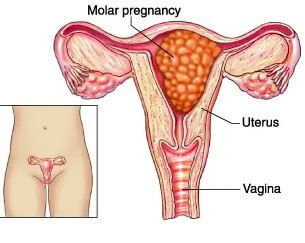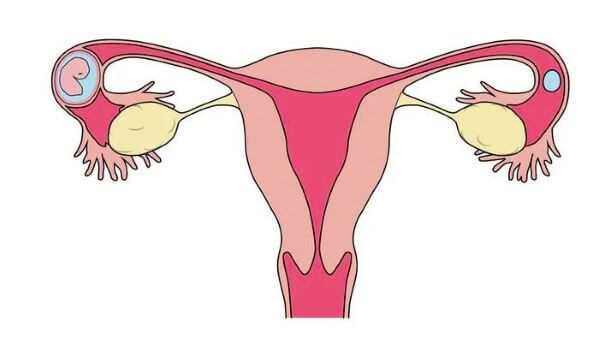The Secret Behind The Use Of Okro To Reduce Labor Pains
- Collins k.k Boateng
- Mar 18
- 4 min read
Updated: Mar 20
Okro: A natural wonder for pregnant mothers. Are you a pregnant woman? Are you in your third trimester? Are you scared of labor pain?
Do you know okro, also called okra? Are you aware of its wonders for pregnant mothers?
Read to find out how you can use okra to reduce labor pain and also quicken delivery.
Okro, also known as okra or "ladies' fingers," is a nutritious vegetable widely consumed across Africa, Asia, and the Americas.
While many people enjoy it in soups and stews, few realize its significant benefits for pregnant women.
One of its most impressive advantages is its ability to support safe and smooth delivery.
But how does okro help? What makes it so special for expectant mothers?
This article will explore the essential nutrients in okro, its role in pregnancy, and scientific proof supporting its benefits for childbirth.
Nutritional Value of Okro
Okro is packed with essential nutrients that are crucial for pregnancy and childbirth. Here are some of the key nutrients found in okro:
Folate (Vitamin B9): Helps in fetal development and reduces the risk of neural tube defects.
Dietary Fiber: Aids digestion and prevents constipation, a common pregnancy issue.
Vitamin C: Strengthens the immune system and improves skin elasticity.
Magnesium: Helps relax muscles and prevent preterm contractions.
Calcium: Supports strong bones and muscle function.
Iron: Prevents anemia, which is common in pregnancy.
Potassium: Maintains fluid balance and supports heart health.
These nutrients not only contribute to a healthy pregnancy but also ensure a smoother and safer delivery process.
How Okro Supports Safe Delivery

Okro has been used traditionally in various cultures to aid childbirth. Here’s how it plays a role in ensuring safe delivery:
Okro Improves Cervical Dilation
Prevents Preterm Labor
Boosts Uterine Health
Enhances Amniotic Fluid Production
Reduces Risk of Cesarean Section (C-Section)
Provides Energy for Labor
Supports Postpartum Recovery
Okro Improves Cervical Dilation
One of the reasons why some women experience prolonged labor is slow cervical dilation.
Okro contains mucilage, a slippery, gel-like substance that helps in softening the cervix, allowing it to expand more easily during labor.
Many midwives recommend okro soup or okro water in the last trimester to help with smooth labor.
Prevents Preterm Labor
Preterm labor can be risky for both the mother and baby. The high magnesium content in okro helps relax the uterus and prevent early contractions.
This means that consuming okro regularly can reduce the chances of giving birth too early.
Boosts Uterine Health
Okro is rich in antioxidants and vitamins that keep the uterus strong and healthy.
A well-nourished uterus is better prepared for labor, reducing complications during childbirth.
Enhances Amniotic Fluid Production
The slimy nature of okro helps keep the amniotic sac well-hydrated.
Adequate amniotic fluid is essential for cushioning the baby, allowing for smooth movements inside the womb, and preventing complications during delivery.
Reduces Risk of Cesarean Section (C-Section)
Studies suggest that proper nutrition can influence the chances of having a natural vaginal birth.
Since okro aids in cervical dilation and uterine strength, it can lower the likelihood of needing a C-section.
Provides Energy for Labor
Labor can be exhausting, requiring stamina and endurance.
The carbohydrates in okro provide a steady source of energy, helping expectant mothers sustain themselves during delivery.
Supports Postpartum Recovery
After delivery, the body needs to heal quickly. Okro's rich vitamin C and iron content aid in postpartum recovery by promoting tissue repair and preventing excessive bleeding.
Research and Scientific Evidence on Okra's Role in Promoting Safe Deliveries for Pregnant Mothers
While traditional knowledge has long supported the use of okro for pregnancy, modern science is also recognizing its benefits. Some studies suggest:
A study published in the Journal of Food Science and Technology highlights that okro is a rich source of antioxidants and essential nutrients that support reproductive health.
Research on dietary fiber and pregnancy outcomes suggests that a high-fiber diet, like one including okro, reduces the risk of gestational diabetes and promotes smooth digestion.
The role of folate in pregnancy is well documented by the World Health Organization (WHO), emphasizing its importance in preventing birth defects and promoting healthy fetal development.
How to Use Okro for Safe Delivery
To enjoy the benefits of okro for safe delivery, pregnant women can incorporate it into their diet in several ways:
Consuming Okro Water
Soak sliced okro in water overnight.
Drink the water the next morning.
This method helps with hydration and cervical dilation.
Okro Soup or Stew
Cook okro with other healthy vegetables and proteins like fish or chicken.
Eat it regularly in the last trimester to support labor readiness.
Okro Smoothies
To consume okro smoothies, blend fresh okro with fruits like bananas and oranges for a nutritious drink.
Raw Okro Slices
Eating fresh okro can provide a direct boost of vitamins and fiber.
Okro Precautions and Considerations For Pregnant Women
Although okro is highly beneficial, pregnant women should keep the following in mind:
Moderation is Key: Too much okro can cause bloating or diarrhea due to its high fiber content.
Consult a Doctor: Every pregnancy is unique, so it’s best to check with a healthcare provider before making major dietary changes.
Ensure Clean Preparation: Wash okro thoroughly before consumption to remove pesticides or dirt.
Frequently Asked Questions
What foods reduce labor pain?
In Ghana, foods rich in omega-3 fatty acids, such as fish and flaxseeds, are believed to help reduce labor pain by promoting relaxation and reducing inflammation.
Dates, a natural source of sugar and potassium, are also thought to help alleviate labor pain and even speed up the labor process.
Additionally, warm ginger tea or ginger-infused water is a popular remedy in Ghanaian culture, known for its anti-inflammatory properties that may help ease labor pain.
Summary
Okro is more than just a delicious vegetable—it is a natural ally for pregnant women.
From improving cervical dilation to preventing preterm labor and boosting uterine health, this humble plant can significantly contribute to a safe and smooth delivery.
Whether consumed as okro water, soup, or in smoothies, adding okro to a pregnancy diet can provide essential nutrients needed for childbirth.
While traditional knowledge has long praised okro for its benefits, science is beginning to confirm its remarkable effects.
If you’re an expectant mother looking for a natural way to prepare for delivery, okro might just be the superfood you need.



Comments